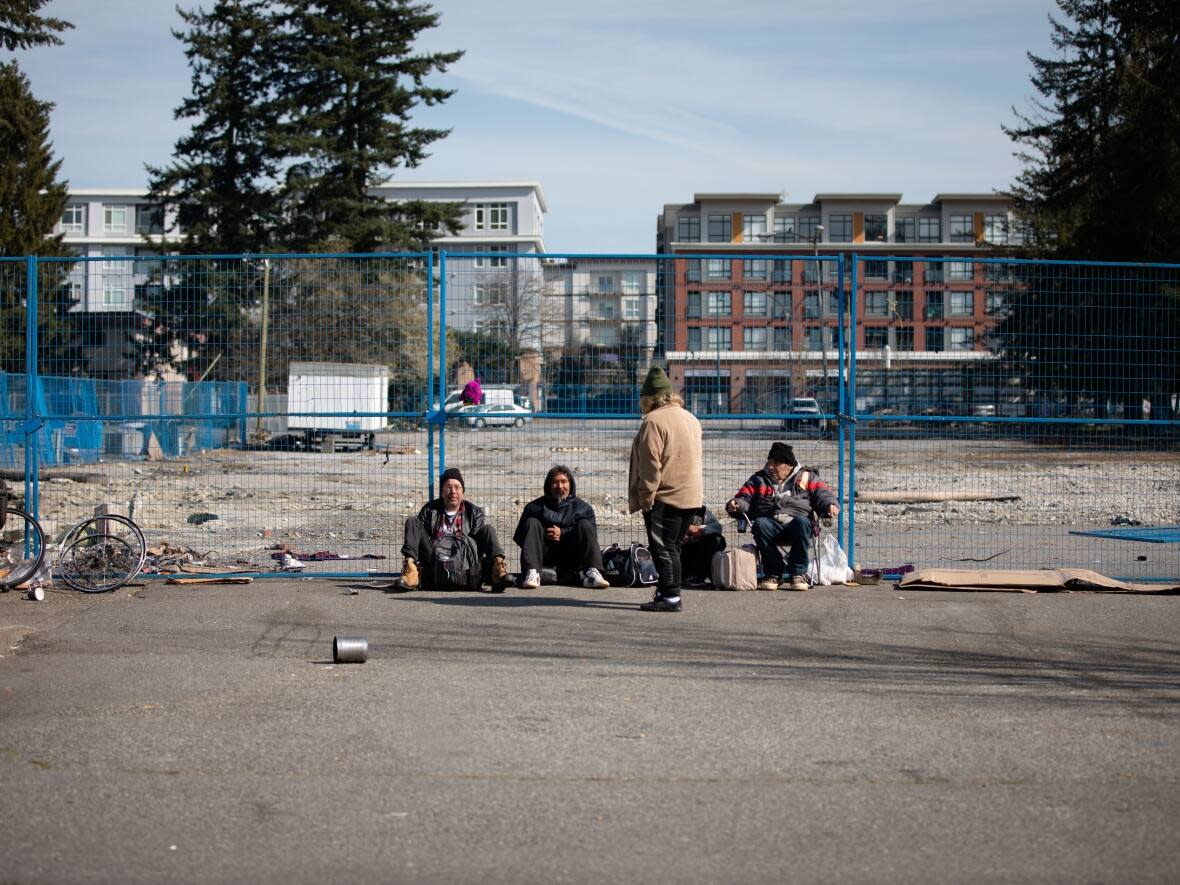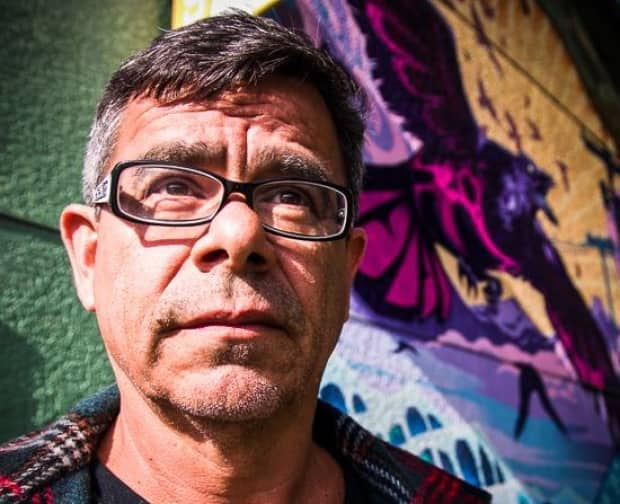Indigenous people in Surrey in dire need of affordable housing, report says

A new report paints a grim picture of homelessness among Indigenous residents of Surrey, B.C., and an urgent need for more affordable housing.
The report by the Surrey Urban Indigenous Leadership Committee (SUILC), released Monday, said at least 635 Indigenous people were homeless in the city in 2020 — a rate of one in 26, compared to a rate of one in 239 for non-Indigenous residents.
The information is based on data from the 2020 homeless count in Metro Vancouver. No other homeless count has been conducted since the start of the pandemic.
Surrey is home to more than 16,000 Indigenous people, making it the city with the biggest urban Indigenous population in the province.
The report said the city doesn't have a sufficient affordable housing supply to meet people's needs, and there's a lack of housing units specifically for Indigenous people.
Surrey has less than one-fifth the number of such units as Vancouver, even though the two cities have similar urban Indigenous populations, according to the report.
"There is an urgent need to act," the SUILC says.

The report recommends "immediate co-ordinated action" by the federal, provincial and municipal governments to create affordable housing.
Housing is particularly needed for single men and women and single-parent families, it says.
Scott Clark, president of the Northwest Indigenous Council, says governments also need to work with Indigenous organizations.
"We've been advocating for a national off-reserve housing strategy for decades," Clark said.
Canada's National Housing Strategy, announced in 2017, has faced backlash for not having the data to know whether billions of dollars spent have helped to get people into homes and for "affordable" housing projects that had higher rents than the average in the local area, among other things.
Indigenous homelessness
The report lays out how Indigenous homelessness is not just defined by a lack of housing but by isolation from families, communities, land and culture.
SUILC conducted interviews with leaders of Indigenous organizations and coalitions in Victoria, Kamloops and Winnipeg, who said colonization, the Sixties Scoop, and people feeling too ashamed to reach out to family after being disconnected from their language and culture are some of the factors driving Indigenous homelessness.
Non-Indigenous methods of tackling urban Indigenous homelessness lack physical, mental, emotional and spiritual healing, the organizations told SUILC.
That's why, the report says, it's important to provide Indigenous people experiencing homelessness culturally safe and appropriate services in order to provide a "sense" of home.
It's also "crucial" to have more Indigenous staff in organizations that serve Indigenous people to increase trust and comfort, the report said.
"It's absolutely, critically important to ensure that we're using an Indigenous-based lens," Clark said.
Andy Yan, a professor in urban planning and the director of the City Program at Simon Fraser University, says Surrey's rapid population growth is also part of the problem.
"It's been one of the fastest growing communities in Canada for almost 20 years. I think that invariably brings challenges to have the social infrastructure catch up to this type of change," Yan said.


